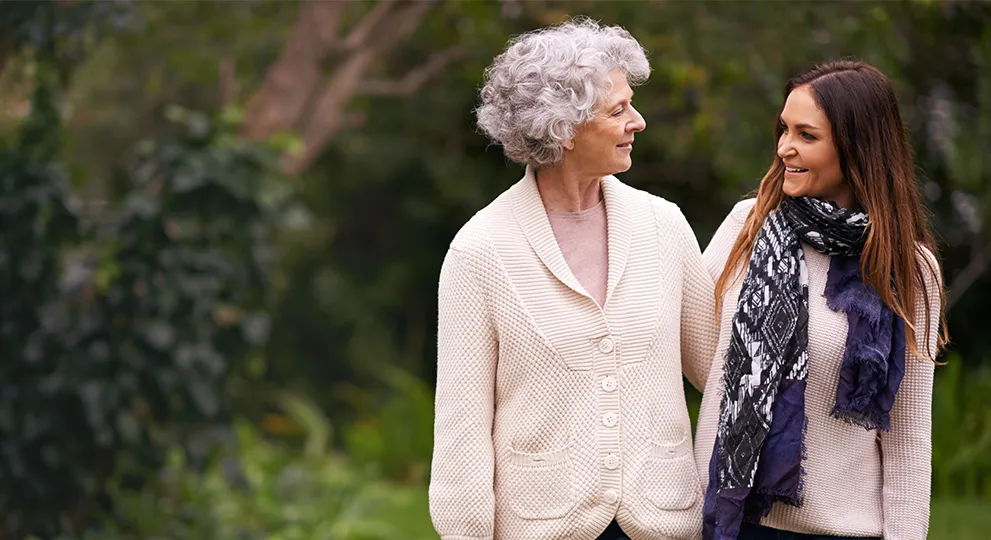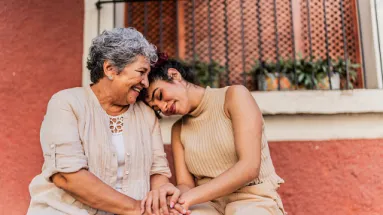Sharing your medical history can help your family take action
Sharing your medical history can help your family take action

You’ve probably heard the expression, “sharing is caring.” When it comes to family, maybe that means passing along a secret recipe, a funny story or some advice. Well, it’s even more true when it comes to sharing our medical history with family. That’s because just like hair or eye color, some types of cancer can be passed down from one generation to the next.
Making sure your family members are informed about their risks can help them take action.
Starting the conversation
If you are living with cancer, you’re a great resource for your family members to talk to when they’re starting to collect medical history. From there, they can work their way through the family tree.
Here are some things to share or ask about when talking about medical history:
- Types of cancer in the family
- Age at diagnosis
- Lineage, meaning was the cancer diagnosis on the mother’s side (maternal) or on the father’s side (paternal)
- Ethnicities (people of some ethnicities, such as those with Ashkenazi Jewish ancestry, may be at greater risk for certain cancers)
- Results of any previous cancer-related genetic testing
You and your loved ones may want to keep a log—physical or virtual—to help keep track of this information. You can share this tool from the CDC to help create a Family Health Portrait.
Sharing medical history may lead to proactive changes
It’s important to talk about medical history with your family. Here’s why:
- Understanding risks can inform healthy habits, such as a specific diet, a new exercise routine, or early cancer screenings.
- If your loved one already knows of a cancer type that runs in the family, they can ask their doctor about it sooner and potentially start making some lifestyle or diet changes. For example, if your biological family has a history of colorectal cancer, you all may consider talking to your doctor about increasing physical exercise, eating a diet high in vegetables or limiting red meat and alcohol, as well as genetic testing and routine screenings.
Why it’s important to encourage your family member to inform their doctor
After you’ve answered all your loved ones’ questions and worked your way up and down your family tree, the next stop is talking to a doctor. They can help your loved one make informed decisions and take steps such as:
- Developing a customized wellness plan based on family history.
- Planning for genetic testing and screening to help identify risk factors and find out if your loved ones carry certain genes.
- Getting screened early, so cancer can be diagnosed and treated sooner—all helping your loved ones’ chances for survival.
Sharing medical history isn’t always an easy conversation—it can be vulnerable and even awkward at times. But it’s important, and it may even bring you and your loved ones closer together.
Start the conversation and be proactive through preventative care. Because even though not all cancers are passed down—and the ones that are may never lead to anything—when it comes to our health, there’s no such thing as being too careful.













